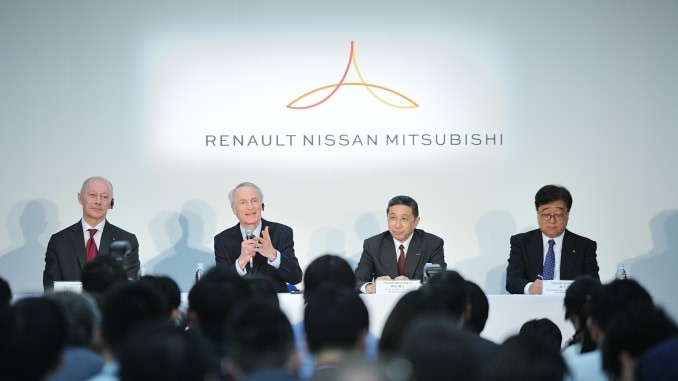
By Professor John Child and Dr Linda Hsieh
The Department of Strategy and International Business, University of Birmingham
Alliances can be very successful – if led by the right people, designed around a sound cooperative strategy supported for the long run by all stakeholders.
It’s not just in international relations that politics can sabotage opportunities to cooperate for mutual economic benefit. Much the same can happen to cooperation between firms. Organisations form alliances because they make strategic and economic sense. Yet often their collaboration is undermined by distrust between the partners, especially if it comes under financial strain.
The strategic alliance between Renault and Nissan (later joined by Mitsubishi) provides a salutary example. Formed in 1999, the alliance became the world #1 auto producer in 2017. It illustrates how a cooperative strategy can offer strong economic benefits for the partners involved. Cooperation between the two auto giants saved Nissan from bankruptcy, while Renault (also in poor shape) gained first-rate engineering and access to new markets. A variety of joint activities, including shared production, pooled procurement, and technology development projects, led to improved efficiency for all parties involved. At the same time, the partners retained their separate identities with customers and employees, building confidence and loyalty. For some years, the Renault-Nissan alliance worked brilliantly under the leadership of Carlos Ghosn. Yet today it is struggling to survive.
What went wrong? The alliance’s unbalanced governance structure has been one factor. Renault has a 43.4 percent fully voting stake in Nissan, but Nissan holds only a 15 percent non-voting stake in Renault. This effectively gives Renault control. Nissan’s grievance at this imbalance grew because it sells about 30% more cars than Renault and contributes more to the alliance’s profits. Joint activities such as the launch of a low-cost car in India in 2014 came to be hampered by failing cooperation. Ghosn’s centralised leadership eroded the separate identities of the firms and supplanted the need for actual cooperation between firms. Then, the prospect of a full merger driven by French voting interests threatened Nissan’s cherished cultural identity as a leading Japanese industrial firm. The arrest in Japan of Ghosn on charges of financial misconduct in November 2018 exposed the simmering rivalry between the French and Japanese nationalists in each camp of the alliance.
Collapsing sales and internal politics have put their partnership in peril. Following a report in January 2020 that Nissan was secretly planning for a potential divorce from Renault, the two companies recently confirmed that a merger is off the table. They have decided to give their strategic alliance another go, because it is unlikely that the three companies could survive on their own. So in announcing their plans to weather the economic storm and repair their fractured alliance, they have gone back to the drawing board. The alliance’s recently announced their survival plan involves major cost-cutting and the further sharing of production capacity and electric vehicle development costs, but within a looser less centralised structure.
What can we take away from this story? Alliances can be very successful – if led by the right people, designed around a sound cooperative strategy supported for the long run by all stakeholders. Yet conflicts often arise between partners, and studies suggest that around 50 per cent of alliances are terminated by the time they reach their fifth anniversary. Even with a good economic and strategic fit, personal and political tensions can develop between partners, reflecting differences in cultural identity and expectations. An understanding of human perception and behaviour is essential to enable the economic payoffs from alliances to be achieved and maintained.
Two insights are particularly important. First, while cooperation provides mutual gains that partner firms cannot generate on their own, it is important for the partners to develop and maintain a perception of mutual and equitable benefit. Second, trust between firms is essential and requires a lot of psychological investment to overcome cultural and other sources of misunderstanding.
Cooperative strategies are ever more common today. Firms often use alliances in order to pool technologies and development costs in search of innovation. Cooperation between auto and artificial intelligence companies to develop autonomous vehicles is an example. The most successful policies to deal with the Covid-19 crisis have involved close cooperation between companies and public agencies, as in Taiwan. However, managers must recognise that the strategic and economic benefits of cooperation cannot be sustained without a lot of effort to overcome human and organizational divisions.
